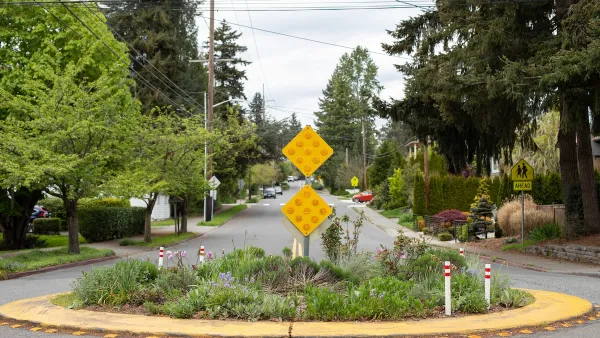La Casa is a first of its kind dorm building in Chicago, offering affordable housing for up to 100 students attending any of the colleges in the area. It is not only a living arrangement, but also a hub of support services, writes Michael Winerip.
"The idea is so simple, it is surprising that no one thought of it sooner," says Winerip. "College is hard enough when students live on campus and have all the support they need. For commuter students in poor neighborhoods living with their families in cramped quarters, just finding somewhere to do schoolwork can be a challenge." La Casa, provides students from all colleges in the greater Chicago area with "more than a place to live." There are on-site resident assistants, counselors, and tutors in addition to computers and printers for general use.
The dorm was built by the Resurrection Project, a non-profit serving Latinos in Chicago. Founded by neighborhood activist Raul Raymundo in the late 1980s, the organization started with small issues such as public safety and has, since then, developed more than 600 low-income housing units, two child-care centers, a health clinic at a local school, youth recreation programs and support services for immigrants.
La Casa was financed with an $8.4 million state grant, $600,00 in donations and a $3 million mortgage, reports Winerip. "Most dorms are owned and run by colleges, and there are dorms run by private companies for colleges," said Joe Agron, editor in chief of American School and University, who believes La Casa is the first of its kind in the country. "But setting up a dorm for students in the community from many colleges - I've never heard of it."
FULL STORY: A Dorm for All Colleges

Planetizen Federal Action Tracker
A weekly monitor of how Trump’s orders and actions are impacting planners and planning in America.

Chicago’s Ghost Rails
Just beneath the surface of the modern city lie the remnants of its expansive early 20th-century streetcar system.

Amtrak Cutting Jobs, Funding to High-Speed Rail
The agency plans to cut 10 percent of its workforce and has confirmed it will not fund new high-speed rail projects.

Ohio Forces Data Centers to Prepay for Power
Utilities are calling on states to hold data center operators responsible for new energy demands to prevent leaving consumers on the hook for their bills.

MARTA CEO Steps Down Amid Citizenship Concerns
MARTA’s board announced Thursday that its chief, who is from Canada, is resigning due to questions about his immigration status.

Silicon Valley ‘Bike Superhighway’ Awarded $14M State Grant
A Caltrans grant brings the 10-mile Central Bikeway project connecting Santa Clara and East San Jose closer to fruition.
Urban Design for Planners 1: Software Tools
This six-course series explores essential urban design concepts using open source software and equips planners with the tools they need to participate fully in the urban design process.
Planning for Universal Design
Learn the tools for implementing Universal Design in planning regulations.
Caltrans
City of Fort Worth
Mpact (founded as Rail~Volution)
City of Camden Redevelopment Agency
City of Astoria
City of Portland
City of Laramie




























